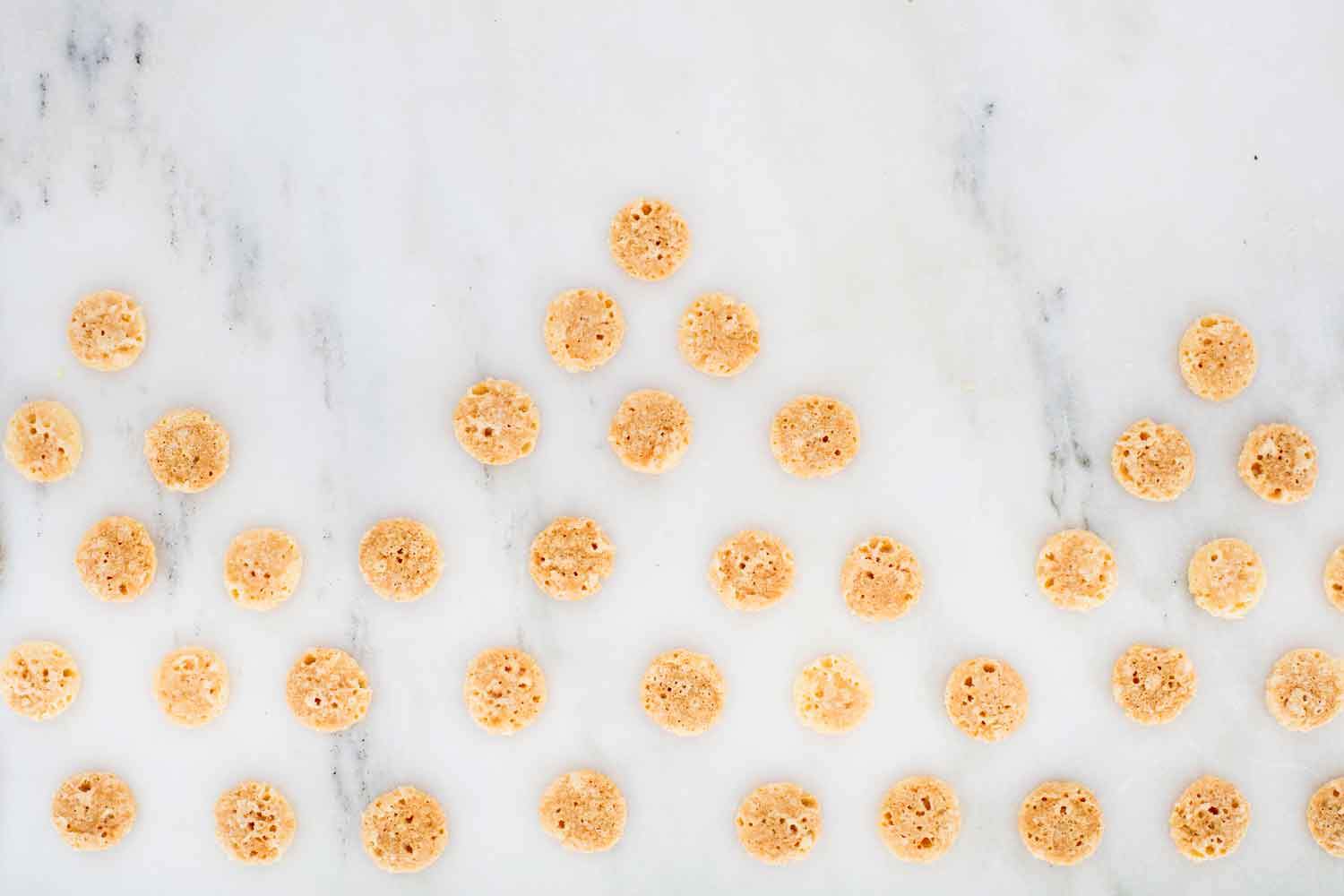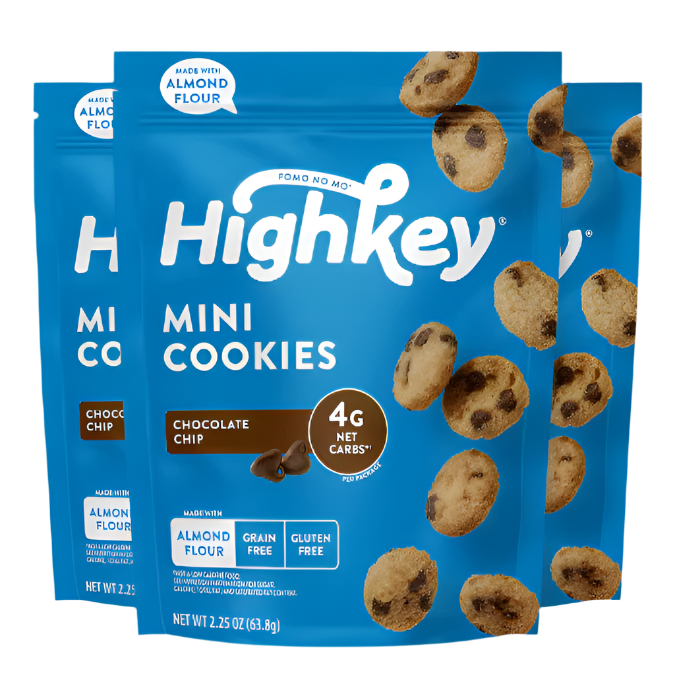Gluten Free Story: What Does It Feel Like to Have Celiac Disease?
Gluten Free Story: What Does It Feel Like to Have Celiac Disease?
Celiac Disease & Gluten Free
As someone with celiac disease, colitis, autoimmune issues, and 40 food sensitivities, I am incredibly thankful for the vast array of gluten-free and specialty food items now available on the market. Restaurants and grocery aisles are overflowing with Gluten-Free certified and stamped products, from menu offerings to specialty bakeshops and even big-chain classic dishes. It's never been simpler to accommodate dietary restrictions, but it hasn't always been easy to live a gluten-free lifestyle.
When I was diagnosed in 2006, nobody knew anything about Celiac disease or even what gluten was. There was a lot of eye-rolling, disbelief, and downplaying alongside many Atkins diet references. Looking back now, while it hurt to feel isolated and unheard, it wasn't anyone's fault. People can't be held accountable for what they don't know - and as recently as 2005, we still, as a collective society, made no cognitive association between what we ate and how we felt. Fast forward to 2020, and the secret is out: nutrition, exercise, sleep, and social connection are the foundations to optimal well being.
Over the last 15 years, I endured many health challenges. During my second year of college, I experienced an overall "systems shutdown." I developed Celiac Disease, anxiety, depression, ADHD, reflux, rheumatoid arthritis, and a host of other related issues like lupus, colitis, and extensive food allergies. I had to relearn how to do everything. Every aspect of normalcy vanished.
I was overwhelmed with the tall order of lifestyle changes and a new cocktail of 15 different pharmaceutical drugs. Despite the medications, I continued to spiral deeper into clinical depression and experienced constant night terrors, crippling anxiety, migraines, and worsening intestinal issues. I slept through days at a time, and my college roommates could not shake me from my screaming night sweats. I watched as my life exploded. I felt intense shame because I didn't understand how to help myself and began to give up altogether. I received straight F's in the fall semester of my sophomore year. I was resentful and angry to learn to control my dietary intake, see a therapist, and mitigate uncomfortable side effects like blackouts, mood swings, brain fog, and a general lack of vitality. My life seemed to be in stark contrast with the lives of my classmates, who seemed to have it so easy; eating pizza, drinking beer, and swallowing zero handfuls of pills to function.
I saw specialist after specialist and swallowed pill after pill, but my health continued to spiral. The message I received was that doctors could not help me and that I had to be my solution. Ultimately, this led me to dive into alternative health therapies, where I began to carve the path to my current fitness profession. Over the next few years, through much research and experimentation, I created a new and healing diet, a holistic lifestyle, and an expansive mindset from the ashes of my previously stress-filled life.
Necessity allowed me to be my own best advocate - something possible within each of us. Looking back, my first "systemic shutdown" was a beautiful gift because it allowed me not only to reprogram my health but also to build a diverse career path, and empower me to speak up and out about my struggles. More importantly, it has enabled me to build tremendous resourcefulness, a library of finely curated resources, and innate compassion to help others through similar personal struggles with all things health and well-being.
It's funny how the exact issues that brought me so much pain years ago are now the same strengths that allow me to excel as a health & life coach, an aspiring gerontologist, a professional bodybuilder, a yoga teacher, and a crisis counselor. It certainly did not feel like kismet in the beginning. Initially, I had a lot of emotions about making drastic, lifelong dietary, and lifestyle changes. I had to change my beliefs about health and wellness overall at a young age, for which I now have tremendous gratitude.
With celiac disease, there's no room for a learning curve. It's black and white: there are severe consequences to eating gluten. That doesn't mean it's simple to go "cold turkey". I tried to get away with it many times and paid for it dearly until I learned the hard way that it simply was not worth it. I was resentful of my friends who would bring their pizza to my apartment for a movie night, knowing I could not partake. Was that fair of me? Was it inconsiderate of them? It doesn't matter - I know that my feelings were loud, and I felt alone, left out, and misunderstood. It took some time to realize, but now I know that those emotions were valid.
Learning to manage the emotions that come with any new restrictive diagnosis is an essential part of the pivot to a new normal. Making room for the feelings without judgment, and creating space for the new to replace what no longer serves is vital for healing.
What does my gluten-free life look like today? I prepare all of my meals, as I have done for the last 15 years. Necessity has allowed me to become quite the kitchenette! While home-cooked meals are always the safest, and generally healthiest, there are a few restaurants and trusted brands like HighKey that provide celiac-friendly gluten-free certified options as well.
The first two years of living gluten-free are the most challenging adjustment. It has become so natural for me now that I don't even think about having Celiacs. Besides learning what one can and cannot have, the other challenge is the learning curve for friends and family. It can take some time for loved ones to learn the intricacies of the gluten-free lifestyle. "Breaking bread" is a social bonding experience, and sharing food is a common love language. Friends and family may feel disoriented or maybe forgetful in the early stages of the gluten-free transition. Here are a few tips that can help soothe the experience of dining with others:
- Always bring your food, whether it's back up or the main dish.
- Never expect others to remember or prepare gluten-free food.
- Contaminated surfaces are just as important as the food itself (celiac).
- Bring enough for everyone to try and share! This helps make a gluten-free life accessible when it's associated with joy.
- Be prepared - read through menus, call ahead and have a backup plan.
- Be gracious with others, waitstaff, and yourself. Try not to get mad when others forget or give you something with gluten. They'll feel terrible. Being gracious will always make a positive lasting impression.
- At the same time, be courteous but hold your ground. Don't eat gluten at the expense of not wanting someone to feel bad. It's a medical issue; it deserves to be taken seriously.
- Movement is medicine! Fitness, of any kind, helps with everything from headaches to cramps to nausea. Move more; feel better.
- Create allies, build support, and educate others with grace. Support is available.
Lastly, Reach out! It's not a death sentence. It's a fabulous, healthy lifestyle and may lead to some unexpected excellent life opportunities like it has for me. Enjoy the process!


